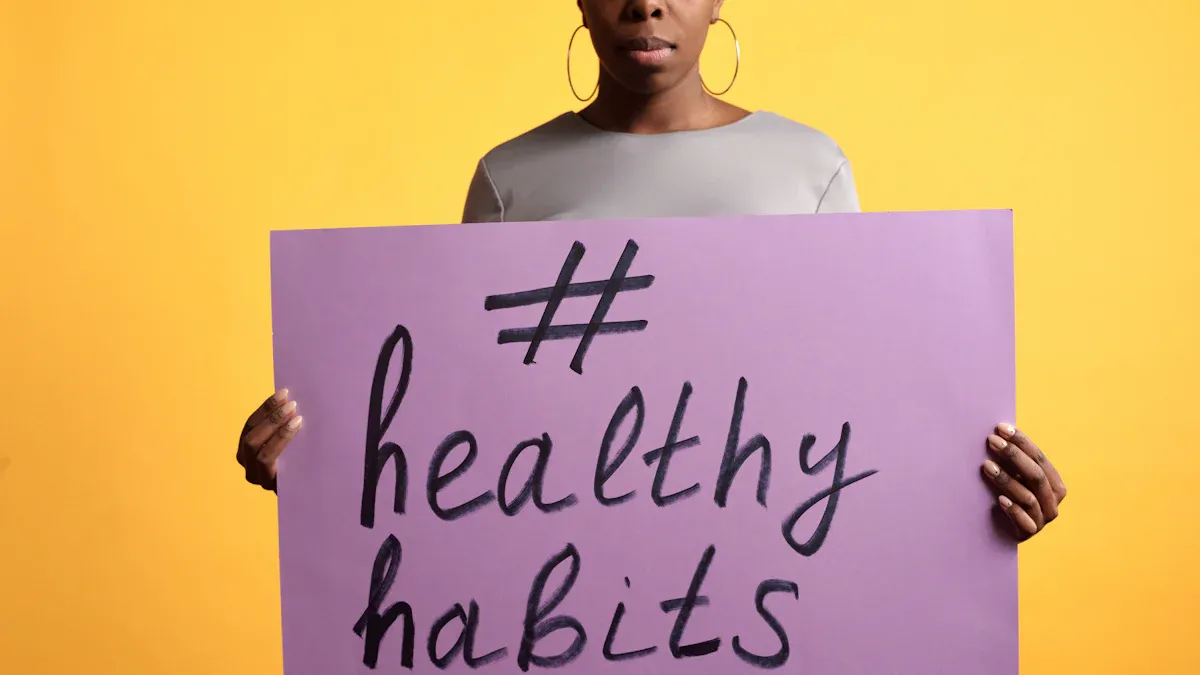5 Habits That Can Help Lower Your Cancer Risk

Your daily choices can shape your future health. Nearly 40% of cancer cases in the U.S. stem from modifiable risk factors. By embracing healthier habits, you can significantly lower your risk, as highlighted in "The Top 5 Habits to Reduce Your Cancer Risk." Studies show that adopting multiple healthy lifestyle factors reduces cancer mortality by 30%. Start today—small steps lead to big changes.
Key Takeaways
Staying away from tobacco is very important. Stopping smoking greatly lowers your chance of getting many cancers.
Keeping a healthy weight helps prevent cancer. Simple changes in food and activity can help a lot.
Being active is key. Exercising for 30 minutes daily can cut cancer death risk by 30%.
The Top 5 Habits to Reduce Your Cancer Risk

Avoid Tobacco
Tobacco use is the leading preventable cause of cancer. It increases the risk of developing 17 different types of cancer, including lung, throat, and mouth cancers. Quitting smoking at any age can significantly reduce these risks. Your body begins to heal as soon as you stop, with damaged cells in your airways replenishing over time. Studies show that eliminating smoking could prevent up to 60% of cancers at smoking-related tumor sites. By avoiding tobacco, you take a powerful step toward protecting your health.
Maintain a Healthy Weight
Excess body fat is linked to several cancers, including endometrial, kidney, and liver cancers. Research highlights that each 5-point increase in BMI raises the risk of endometrial cancer by 50% and esophageal cancer by 48%. Maintaining a healthy weight through balanced eating and regular exercise can lower these risks. Even small changes, like reducing sugary drinks or processed foods, can make a big difference.
Measure | Cancer Type | Risk Increase (%) |
|---|---|---|
Each 5 points in BMI | Endometrial cancer | 50 |
Esophageal adenocarcinoma | 48 | |
Kidney cancer | 30 |
Eat a Balanced Diet
A diet rich in whole grains, vegetables, and fruits can lower cancer risk by 10-20%. Limiting processed foods, red meat, and sugary drinks also helps. Whole foods provide essential nutrients that protect your cells and reduce inflammation. Adopting a healthy dietary pattern not only supports cancer prevention but also boosts your overall well-being.
Stay Physically Active
Physical activity plays a vital role in reducing cancer risk. Replacing just 30 minutes of sedentary behavior with moderate exercise can lower cancer mortality risk by 30%. Activities like brisk walking or cycling improve your immune system and help maintain a healthy weight. Staying active is one of the simplest ways to protect yourself from cancer and other chronic diseases.

Protect Your Skin from the Sun
Skin cancer is one of the most common cancers, but it’s also one of the most preventable. Avoiding sunburns and high-intensity sun exposure can significantly lower your risk of melanoma. Use sunscreen, wear protective clothing, and seek shade during peak sun hours. These simple steps can protect your skin and reduce your cancer risk.
Your daily habits hold the power to shape your future health. By adopting these 10 practices, you can reduce your cancer risk and improve your overall well-being. Studies show that up to 40% of cancer cases are preventable through lifestyle changes.
Evidence Type | Statistic | Description |
|---|---|---|
Preventable Cases | 40% | Up to 40% of cancer cases are preventable through lifestyle changes |
Healthy Diet | 10-20% | Potential reduction in overall cancer risk with a healthy dietary pattern |
Start small. Replace one unhealthy habit with a healthier one. Over time, these changes will add up. Take charge of your health today—you have the ability to create a brighter, healthier future. 🌟
FAQ
What is the most important habit to reduce cancer risk?
Avoiding tobacco is the single most impactful habit. It significantly lowers your risk of developing multiple types of cancer, including lung and throat cancers.
How long does it take to see benefits after quitting smoking?
Your body begins healing immediately. Within weeks, lung function improves. Over time, your cancer risk decreases, aligning closer to that of a non-smoker.
Can small changes in diet really make a difference?
Absolutely! Incorporating more whole grains, fruits, and vegetables into your meals can lower cancer risk by up to 20%. Small steps lead to lasting health benefits.
See Also
An In-Depth Overview of Various Cancer Types
Exploring Cancer Types Associated with AIDS
Recognizing Symptoms and Causes of Laryngeal Cancer

